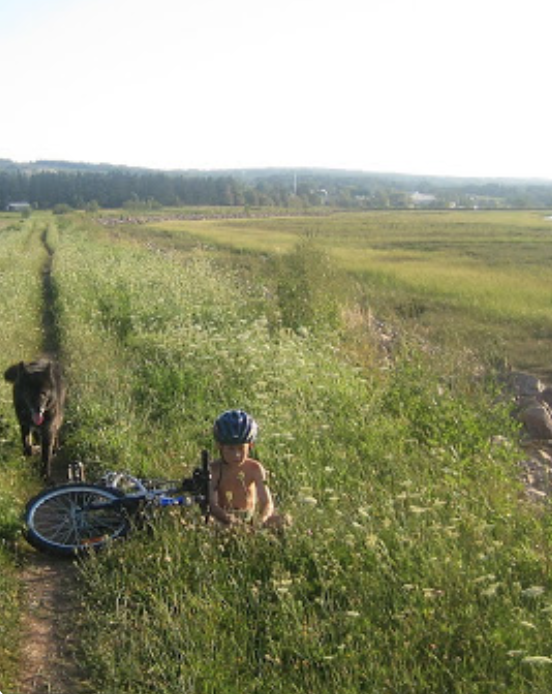A Canadian future of shared health and prosperity will depend on our ability to manage ecosystems and all the services they provide for human well-being now and in the future. In working landscapes – land actively used for production of resources such as food, fish, energy, and forest products – the focus has typically been on the cheap, reliable, and efficient production of individual ecosystem services such as food, energy, or timber. However, these efforts often overlook the fact that landscapes simultaneously produce multiple ecosystem services that interact in complex, dynamic ways, leading to increases in a few services (e.g., food, timber, energy) at the cost of declines in many other services (e.g., flood control, recreation, carbon storage), which we call trade-offs. Reaching consensus about how to provide for present and future human ecosystem services needs equitably, while safeguarding sustainable ecosystems for the future, requires evidence-based management strategies and a scalable natural resource science that embraces the complexity of social-ecological systems Surprisingly, the data and knowledge needed for such evidence-based management of working landscapes has remained out of reach.
Three areas where new knowledge can improve ecosystem services management in working landscapes are:
NSERC ResNet: A network for monitoring, modelling, and managing Canadian ecosystem services for sustainability and resilience unites a broad community of scholars and resource managers from across academic, government, NGO, and industry sectors to identify paths for sustainable landscape management that ensure biologically diverse, resilient, and adaptive social-ecological systems amid the complexity of competing values, stakeholders, and political jurisdictions.
Scientific and partnership activities of ResNet occurs in a series of six exemplar working landscapes across Canada. In each landscape, ResNet launches a series of investigations, co-designed with local industry, government, NGO, and Indigenous partners and other stakeholders, into the provision, modelling, and governance of multiple ecosystem services.
ResNet also features three themes in which scientists, working with theme partners, apply theory to the data and knowledge generated in the six landscapes to improve the management, modelling, and monitoring of ecosystem services in each landscape, and then synthesize the knowledge generated across landscapes to produce tools for monitoring, modelling, and managing ecosystem services beyond these focal landscapes in other working landscapes of Canada and at larger scales.
The NSERC ResNet Strategic Network is improving monitoring, modelling, and managing of ecosystem services in working landscapes by partnering Canadian university researchers with government and industry scientists. Major funding is provided by the Natural Sciences and Engineering Research Council of Canada (NSERC), in partnership federal and provincial government agencies and industrial partners working at local to federal levels.
Three areas where new knowledge can improve ecosystem services management in working landscapes are:
- Multi-scalar monitoring of multiple ecosystem services and their interactions that reveals key drivers of ecosystem services change
- Ecosystem services models that take into account the complex systems that produce ecosystem services
- An understanding of how to bring all of this information to decision-makers in a format they can use to improve governance of the provision and delivery of ecosystem services.
NSERC ResNet: A network for monitoring, modelling, and managing Canadian ecosystem services for sustainability and resilience unites a broad community of scholars and resource managers from across academic, government, NGO, and industry sectors to identify paths for sustainable landscape management that ensure biologically diverse, resilient, and adaptive social-ecological systems amid the complexity of competing values, stakeholders, and political jurisdictions.
Scientific and partnership activities of ResNet occurs in a series of six exemplar working landscapes across Canada. In each landscape, ResNet launches a series of investigations, co-designed with local industry, government, NGO, and Indigenous partners and other stakeholders, into the provision, modelling, and governance of multiple ecosystem services.
ResNet also features three themes in which scientists, working with theme partners, apply theory to the data and knowledge generated in the six landscapes to improve the management, modelling, and monitoring of ecosystem services in each landscape, and then synthesize the knowledge generated across landscapes to produce tools for monitoring, modelling, and managing ecosystem services beyond these focal landscapes in other working landscapes of Canada and at larger scales.
The NSERC ResNet Strategic Network is improving monitoring, modelling, and managing of ecosystem services in working landscapes by partnering Canadian university researchers with government and industry scientists. Major funding is provided by the Natural Sciences and Engineering Research Council of Canada (NSERC), in partnership federal and provincial government agencies and industrial partners working at local to federal levels.
OUR PRINCIPLES
- We work with empathy, understanding, and transparent communication.
- We develop a culture of lifting each other up, rather than one of competition.
- We commit to ensuring that our network activities do not erode ecosystem services, and to using low carbon options where possible.
- We work with respect for one another, and for the many disciplines and knowledges that are critical to answering the questions that compel us.
- We intentionally integrate different kinds of knowledge in a manner that represents the diversity of Canada’s landscapes.
- We seek transparency in communication, including around publications and authorship.
- We make network outputs, including data, models, papers, meaningfully available to researchers, partners, and other user groups.




